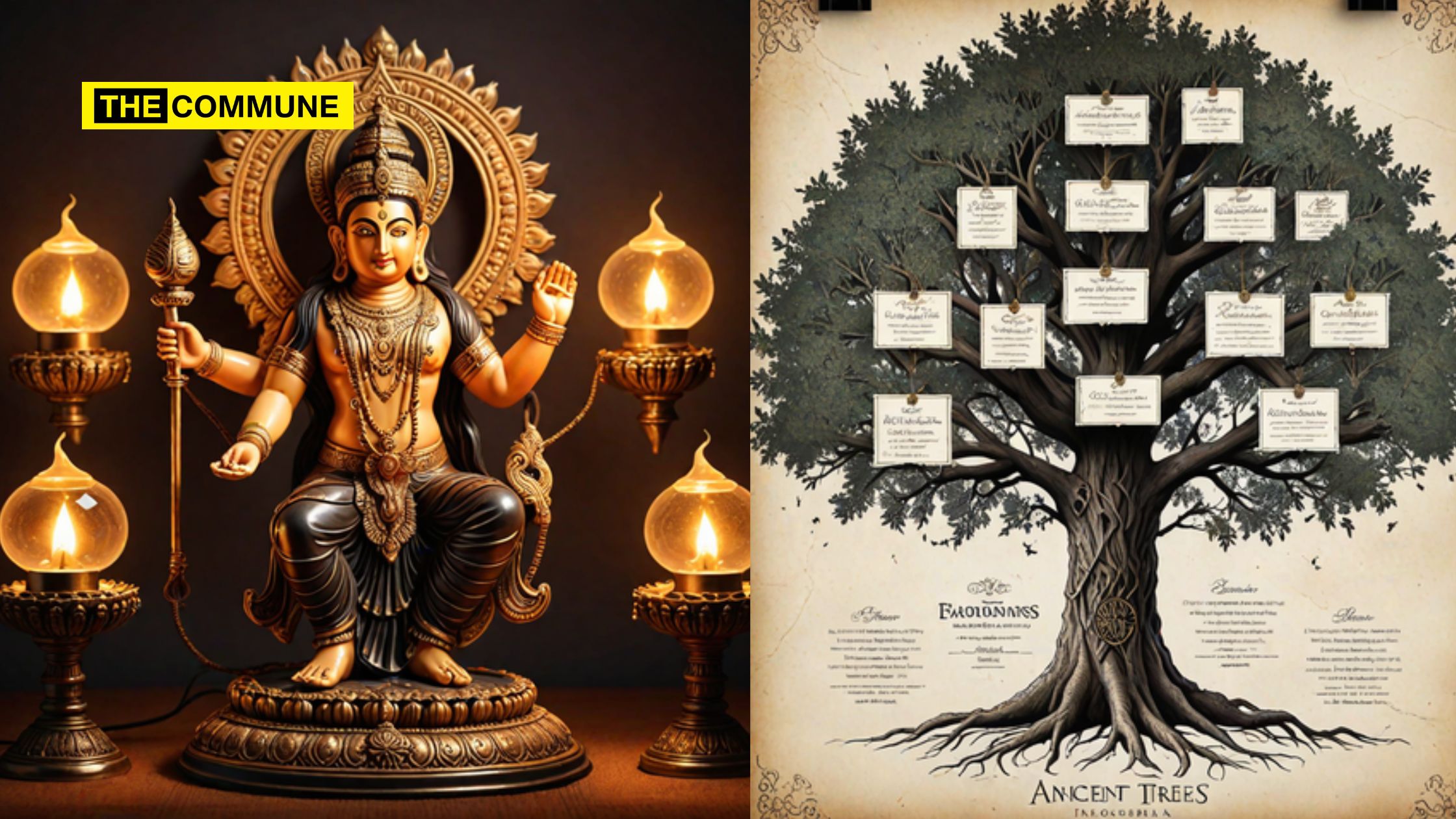
In Hinduism, the concept of worship revolves around devotion (bhakti) towards various deities, each of whom represents different aspects of the divine. Hinduism is often described as polytheistic because it acknowledges a multitude of gods and goddesses (Devas and Devis). However, it also embraces the idea of a single, formless divine reality (Brahman) from which all gods and goddesses emerge. Thus, Hindus can be both monotheistic (believing in one ultimate reality) and polytheistic (worshipping multiple deities).
The principality is the Trimurti, or the three principal deities: Brahma (the creator), Vishnu (the preserver), and Shiva (the destroyer and transformer). Together, they form the Trimurti, representing the cycle of creation, preservation, and destruction in the universe.
Haven’t we been informed about the significance placed on the kuladevata or ancestral Clan Deity, as our elders have advised veneration of these clan protectors who hold the blessings passed on from other prominent deities? Indeed, many of us have. Hinduism incorporates a wide range of beliefs and rituals, with the kuladevata holding a central role among the deities.
Kuladevata
So, who exactly is the kuladevata? It is the deity revered by our paternal grandparents, tracing back to a lineage known as ‘Gotram’. Women from different lineages would become life partners in this lineage, ensuring no intermarriage within the same gotra. This demonstrates the interconnectedness of the Rishi lineage and the importance of this practice.
There are thousands of temples worldwide, but visiting them is not always guaranteed. However, before we even understood the concept of bhakti, our parents took us to the temple of our kuladevata for rituals like the first hair offering and ear piercing. Standing in the kuladevata’s sannidhi (sanctum) connects us to our ancestral lineage. This connection is unique and cannot be replicated elsewhere. Often, we do not know more than two generations of our paternal grandmothers, highlighting the importance of this lineage.
Worshiping the kuladevata allows us to build bundles of good deeds, even if we have committed sins. Our forefathers bless us as pitrus (ancestors) when we stand before this deity. This system is far-sighted and well-designed.
The Power of Kuladevata
The Kuladevata protects the clan and is considered the most powerful deity. Worshipping the family deity brings grace and the benefits of worshipping other deities. Although often seen as a minor deity, its power is immeasurable and should not be ignored. Even Yama, the god of death, requires the permission of one’s family deity to take a life.
Kuladevatas are pious souls who have become deities in our ancestry. These holy souls protect their clans and loved ones, so they are called family deities. They are also capable of removing karma. Those with too many karmas may not even know their family deity. Fortune tellers can call upon the family deity to provide details about us, but they cannot do so arbitrarily. Sorcerers performing deeds must control the clan deity with a magical bond. Some deities, not bound by magical shackles, can destroy witches.
Worship Practices
Women are unique worshipers of two clan deities: one from their birth house and one from their marital house. After marriage, they start worshipping the family deity of their husband’s house. Yearly worship of the family deity of the birth house protects them throughout their lifetime. Worshipping the family deity of the marital house gives them strength to overcome struggles. If the family deity of the birth house has not been worshipped before, it should be done during festivals.
Worshiping the clan deity is crucial for the clan’s prosperity. Without the grace of the kuladevata, the blessings of other gods are not available. Powerful rituals and temple visits may not yield the expected results without the family deity’s favour. Regular visits to the family deity’s temple, performing abhishekam, and arranging pujas are essential for a prosperous life.
Scientific Perspective
Subscribe to our channels on Telegram, WhatsApp, and Instagram and get the best stories of the day delivered to you personally.




